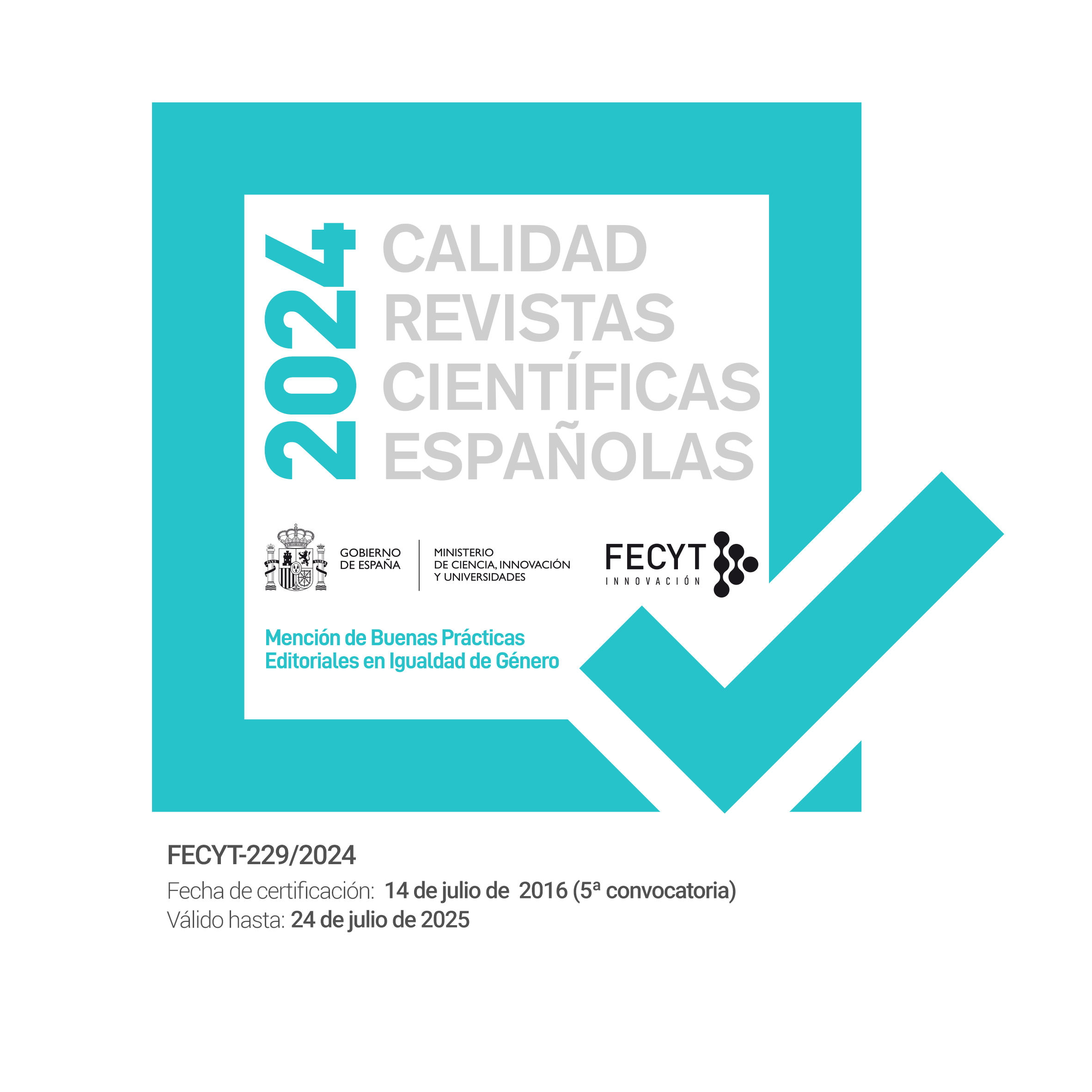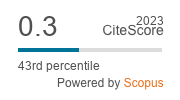La creixent incidència de la Xina a Sud-Amèrica de cara al nou mil·lenni: què cal esperar en el futur?
Paraules clau:
Xina, Sud-amèrica, Dècada Daurada, Dependència, Recursos naturalsResum
En aquest article s'analitzen els principals reptes de la creixent presència de la Xina a Sud-amèrica en el terreny econòmic i comercial. Si bé el fort increment de la IED xinesa des de 2010 i l'augment de la demanda del país asiàtic de recursos naturals, especialment hidrocarburs i minerals, van generar un període d'auge conegut com Dècada Daurada (2003-2013), no s'han de ignorar els reptes que aquests processos han suposat en el Con Sud. La principal conclusió d'aquesta investigació revela que la relació econòmica i comercial amb la Xina ha reforçat a la regió diverses paradoxes estructurals com la dependència dels recursos naturals, l'impacte socioambiental i la concentració de la tinença de la terra a favor de capital xinès. La documentació utilitzada prové principalment del Ministeri de Relacions Exteriors de Xile (Minrech).Referències
ALLARD, Raúl (2009). La globalización por dentro: el estado-nación y los actores transnacionales. Santiago de Chile: Catalonia.
AUTY, Richard (2002). Sustaining development in mineral economies: the resource curse thesis. Londres: Routledge.
BADIA-MIRÓ, Marc; PINILLA, Vicente, y WILLEBALD, Henry (2015). Natural resources and economic growth: learning from history. Nueva York: Routledge.
BARBOSA, Luiz (2015). Guardians of the brazilian amazon rainforest: environmental organizations and development. Nueva York: Routledge.
BOSCHINI, Anne; PETTERSSON, Jan, y ROINE, Jesper (2007). «Resource curse or not: a question of appropriability». Scandinavian Journal of Economics, Estocolmo, vol. 109, núm. 3, págs. 593-617.
BRUNNSCHWEILER, Christa, y BULTE, Erwin (2008). «The resource curse revisited and revised: a tale of paradoxes and red herrings». Journal of Environmental Economics and Management, Atlanta, núm. 55, págs. 248-264.
CHEN, Taotao, y PÉREZ, Miguel (2014). Chinese foreign direct investment in Latin America and the Caribbean. Santiago de Chile: CEPAL.
CUI, Shoujun, y PÉREZ, Manuel (2016). China and Latin America in transition: policy dynamics, economic commitments and social impacts. Nueva York: Springer.
ELLIS, Evan (2014). China on the ground in Latin America: challenges for the chinese and impacts on the region. Nueva York: Palgrave Macmillan.
ESCUDERO, Manuel, y GARCÍA, Jessica (2014). La responsabilidad social empresarial y la creación de valor en América Latina. Bilbao: Universidad de Deusto.
FRANKEL, Jeffrey (2012). «The natural resource curse: a survey of diagnoses and some prescriptions». HKS Faculty Research Working Paper Series RWP12-014. Cambridge: John Fitzgerald Kennedy School of Government, Harvard University, págs. 1-29.
GALLAGHER, Kevin (2016). The China triangle: Latin America’s China boom and the fate of the Washington Consensus. Oxford: Oxford University Press.
GÓMEZ, Sergio (2012). The land market in Latin America and the Caribbean: concentration and foreignization. Santiago de Chile: FAO.
GUELAR, Diego (2013). La invasión silenciosa: El desembarco chino en América del Sur. Buenos Aires: Penguin Random House.
HUMPHREYS, Macartan; SACHS, Jeffrey, y STIGLITZ, Joseph (2007). «What is the problem with natural resource wealth?». En: HUMPHREYS, M.; SACHS, J., y STIGLITZ, J. (coords.). Escaping the resource curse. Nueva York: Columbia University Press, págs. 1-20.
LANXIN, Xiang (2008). «An alternative chinese view». En: ROETT, R., y PAZ, Guadalupe (coord.). China’s expansion into the western hemisphere: implications for Latin America and the United States. Washington: Brookings Institution Press, págs. 59-76.
LOVEJOY, Thomas (2006). Climate change and biodiversity. Nueva Delhi: The Energy and Resources Institute.
MACHINEA, José (2010). La crisis económica en América Latina: alcances e impactos. Madrid: Siglo XXI.
MEHLUM, Halvor; MOENE, Karl, y TORVIK, Ragnar (2006). «Institutions and the resource curse». The Economic Journal, Hoboken, vol. 116, págs. 1-20.
MYERS, Margaret, y WISE, Carol (2016). The political economy of China-Latin America relations in the new millennium: brave new world. Nueva York: Routledge.
OCAMPO, José (2015). «Los retos del desarrollo latinoamericano a la luz de la historia». Cuadernos de Economía, Bogotá, vol. 34, núm. 66, págs. 479-506.
PARDO, Mercedes (2002). La evaluación del impacto ambiental y social para el siglo XXI: teorías, procesos, metodología. Madrid: Fundamentos.
PETKOVA, Elena; LARSON, Anne, y PACHECO, Pablo (2011). Gobernanza forestal y REDD+: Desafíos para las políticas y mercados en América Latina. Bogor: Center for International Forestry Research.
PINTO, Honorio (2011). «Shougang Hierro Perú S.A.A.: problema laboral 1993-2010». Investigaciones Sociales, Lima, vol. 15, núm. 27, págs. 369-389.
RAY, Rebecca; GALLAGHER, Kevin; LÓPEZ, Andrés, y SANBORN, Cynthia (2015). China in Latin America: lessons for south-south cooperation and sustainable development. Boston: Global Economic Governance Initiative of Boston University.
RIEFF, David (2016). El oprobio del hambre: alimentos, justicia y dinero en el siglo XXI. Madrid: Penguin Random House.
ROBINSON, James; TORVIK, Ragnar, y VERDIER, Thierry (2006). «Political foundations of the resource curse». Journal of Development Economics, Atlanta, vol. 79, págs. 447-468.
ROSS, Michael (2004). «What do we know about natural resources and civil war?». Journal of Peace Research, Oslo, vol. 41, núm. 3, págs. 337-356.
SACHS, Jeffrey, y WARNER, Andrew (1995). «Natural resource abundance and economic growth». NBER Working Paper, Cambridge, núm. 5398, págs. 1-54.
SANBORN, Cynthia; RAY, Rebecca, y GALLAGHER, Kevin (2017). China and sustainable development in Latin America: the social and environmental dimension. Cambridge: Anthem Press.
STIGLITZ, Joseph (2005). «Making natural resources into a blessing rather than a curse». En: SCHIFFRIN, A., y SVETLANA, A. (eds.). Covering oil: a reporter’s guide to energy and development. Nueva York: Open Society Institute, págs. 13-19.
SVAMPA, Maristella (2013). «Consenso de los Commodities y lenguajes de valoración en América Latina». Revista Nueva Sociedad, Buenos Aires, núm. 244, págs. 31-46.
VIALE, Enrique, y SVAMPA, Maristella (2015). Maldesarrollo: La Argentina del extractivismo y el despojo. Buenos Aires: Katz.
VIDAL, Gregorio, y NAVEIRO, Omar (2010). América Latina: democracia, economía y desarrollo social. Madrid: Trama.
WEIBEL, Mauricio (2016). Traición a la patria: «Milicogate». El millonario desfalco de la Ley del Cobre: la historia oculta de la corrupción en el Ejército de Chile. Santiago de Chile: Penguin Random House.
YÁÑEZ, Nancy, y MOLINA, Raúl (2008). La gran minería y los derechos indígenas en el norte de Chile. Santiago de Chile: Lom.
Descàrregues
Publicades
Número
Secció
Llicència
L'autor/a que publica en aquesta revista està d´acord amb els termes següents:
a. L´autor/a conserva els drets d´autoria i atorga a la revista el dret de primera publicació de l´obra.
b. Els textos es difondran amb la llicència Creative Commons d'Atribució-NoComercial-SenseDerivades que permet comprtir l´obra amb tercers, sempre que en reconeguin l´autoria, la publicació inicial en aquesta revista i les condicions de la llicència. No es permet fer ús comercial de l'obra ni distribuir obres derivades sense el permís explícit del titular dels drets d'autor.





